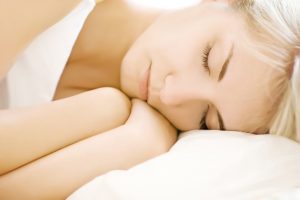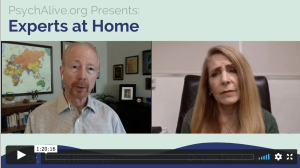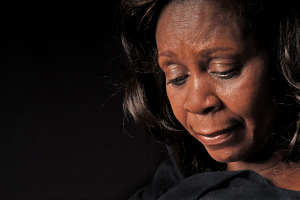Why Sleep is So Necessary and in Such Short Supply

- Lack of sleep can lead to Anxiety, Depression, Decreased Immune Function, Weight Gain, Heart Disease, Diabetes, and Cancer.
- We are a deeply sleep deprived society relying more and more on pharmaceuticals to correct this dysfunction.
Myths and Beliefs about Sleep to Mention and Clarify:
- That we don’t need that much sleep as we get older (sleep/rest is sacred and necessary at all ages for our overall emotional, spiritual, and physiological health),
- That we should fall asleep as soon as our head hits the pillow (it is a process of letting go that we need to address in our waking day to make transition to sleep easier),
- That medication induced sleep is good quality sleep (medication interferes with REM state, (rapid eye movement in dream cycle), and severely reduces quality sleep)
In my psychotherapy practice, I have counseled post 40-year-old women with various forms of insomnia (either difficulty getting to sleep or waking in the middle of the night with mind racing unable to go back to sleep for hours), as well as, fitful sleep filled with tossing turning, and, at the extreme end, full PTSD symptoms of nightmares and REM disorders. The process of regulating sleep is not found in a pill.
There are no shortcuts. We need to address all areas of well-being: body, mind, emotions, and spirit. We continue to defy our natural circadian rhythms (24 hr cycles of sleeping/eating, cell regeneration, hormone production, etc, that is inherent). The inability to sleep becomes an indicator of our being out of balance. We can listen to this indicator, rather than reach for the latest sleep medication, or substance use/abuse. Our bodies are inherently well and know how to right themselves if given the proper environment. Technology, though an amazing vehicle for communication and connection, is pushing us out of balance, and further from attuning to our internal cues. To return to those cues, we must return to our bodies, reconnect our mind with our hearts, and value the different modes of Being and Doing.
Body : addressing Nutrition (regular, well proportioned, healthful meals, omega 3s, decreasing caffeine, complex carbs, increased lean protein, etc,), Supplements, (fish oils, L-Tryptophan, Melatonin), Menopausal women need to find natural supplements that help balance hormone levels, as hormones are a major precursor to sleep disturbance. Movement/ Exercise (to release anxiety, to produce serotonin (well-being neurotransmitter), regulate heart, blood sugar, etc.), Nature/time outside (to attune to your own internal rhythms), Nervous System regulate the activation or stress response (learning how mind relates to, and perceives stress), Breathing, (learning how to breathe, increasing parasympathetic NS)
Mind : our Thoughts are continuous, it is what the mind does, approximately 88,000 thoughts per day, we need to learn how to become Mindful of thoughts without becoming overrun by them, and know how to return to our bodies to re-inform an over active nervous system that leads to sleep disturbance. By examining perception of self, others, situations and how this relates to our tension or relaxation, we can begin the process of implementing a pause during the day, many times a day, to rest the racing mind and identify beyond our thoughts, preparing for the ultimate slowing down of sleep time.
Emotions: Expression and movement of feelings is necessary to healthy sleep. Feelings often get buried out of fear that they will take over and we will lose our strong hold on control. The opposite is true. The more we acknowledge and allow the natural movement of emotions, the more freedom we have to make choices about our next action. The alternative is getting backlogged in unexpressed emotions, that solidify, and later come to life when we try to sleep. (movement is healing, stagnation is illness.) If we are tossing and turning, we might ask, when was the last time I cried, or was held, or told someone they hurt or annoyed me.
Spirit: when we are out of alignment with our essential nature, and disconnected from purpose and meaning, all our daily tasks can become empty, filled only with anxiety. It is good to learn how to find stillness in life to inquire about your heart’s longing and what is meaningful, what is your creative expression. Sleep disturbance is a cue, pointing us toward what needs our attention. Take time to inquire.
Some Tips on Creating Better Sleep:
Sleep ritual is necessary to prepare body and mind. Much sleep disturbance comes from a fast paced day with no transition to winding down and heading toward this next event on the calendar called sleep. Decreasing light a few hours prior to bedtime is important as it increases the melatonin levels in the brain, a necessary neurotransmitter for sleep (still debate over whether it is a hormone or neurotransmitter). Try not to be on your computer or other electronic devices prior to bed, the light and electromagnetic field disturbs the natural rhythms of the body/brain and interferes with sleep preparation. Keep from food consumption at least 2 hours prior to bedtime so the body is settled, to prevent sleep disturbance from an active digesting belly. Refrain from alcohol, it will induce sleepiness but disturb sleep cycles and cause mid-cycle waking and poor quality sleep. Try soothing activities like a bath, cup of caffeine free tea, reading (non-work related material), maybe meditate, do a progressive relaxation technique, sing, play an instrument, write in your journal, pray.
Sleep is not just a physiological need; it is needed for our emotional processing, and for our spiritual integration. There is a lot going on while we sleep, we journey beyond our waking consciousness, a time to realign our spirit that may have been cast aside in waking day doing mode.
Our society is severely sleep deprived, and we desperately want and need sleep, but we also fear it. When we go to bed, lay our head upon the pillow, it requires our letting go in order for sleep to enter. If you are someone who hits the pillow and you’re out like a light, it is an indicator of how sleep deprived you are. Sleep is a process. A slow settling down, readying yourself for the letting go process. If you have been going all day, eaten poorly, not exercised, not taken time to breathe or pause, when you lie down and stop finally, all of the day flies forward like the junk in the back seat of a car when you slam on the brakes. This is why it is necessary to learn how to weave pauses into our days, learn how to manage stress incrementally, so bedtime does not become the first pause of the day. Learning how to balance our Doing time with Being time
Begin to value sleep as much, if not more, than every other task on your list. It can become a deep restorative pleasurable Being time. For it to be quality sleep, it is important that we travel through the various cycles of sleep that includes the dream cycle. This is essential to emotional processing. Our dreams are our unconscious speaking to us. Our psyche is kind to us, it gives us images and symbols that inform us indirectly of emotional content, until we are ready to decipher the code, and able to integrate the messages. We can become very intimate with our internal world, find out what patterns are needing changing, where we are stuck, what needs expression, etc. by listening to our dreams. But even if you don’t remember your dreams, they are a healing and necessary component to our overall health. It is important to note that most sleep medications interfere with the REM (rapid eye movement) cycle of sleep where we dream. The medications do not provide the quality and depth of sleep conducive to our health. There are times when it is necessary and good to seek the help of medication interventions as in times of crisis and overwhelm, when some type of sleep is better than none. But we are a society of immediate gratification, believing in the commercials for quick fixes, becoming dependent upon these external aides on a continuous basis that can lead to further sleep disorders.
Bookend your days: Let there be transition time at waking and at sleep time. Create the 2 hour slowing period as mentioned, journal right before closing your eyes, ready yourself for the deep connection to yourself with some deep breathing exercises, learn Mindfulness. Keep the journal bedside in case you do remember a dream and write it down verbatim. When you wake in the morning, rather than jump out of bed or begin to review your task list, see if you can stay with the last image of a dream, or gently check into the physical sensations of this body transitioning into waking time, take three slow deep breaths, maybe, if you have time, write in your journal, set your intentions for the day (not your goals).
Soon your days will become more deeply rooted in your internal world, and you will learn when you fall too heavily on Doing mode, and take the one breath that reconnects your mind to heart to body, to Being, fully human, returning to your wholeness and health. May your nights be filled with deep, dream-filled sleep.
Copyright 2011 Diane Renz, L.P.C., Your Gateway to Healing, Inc.










Leave a Reply